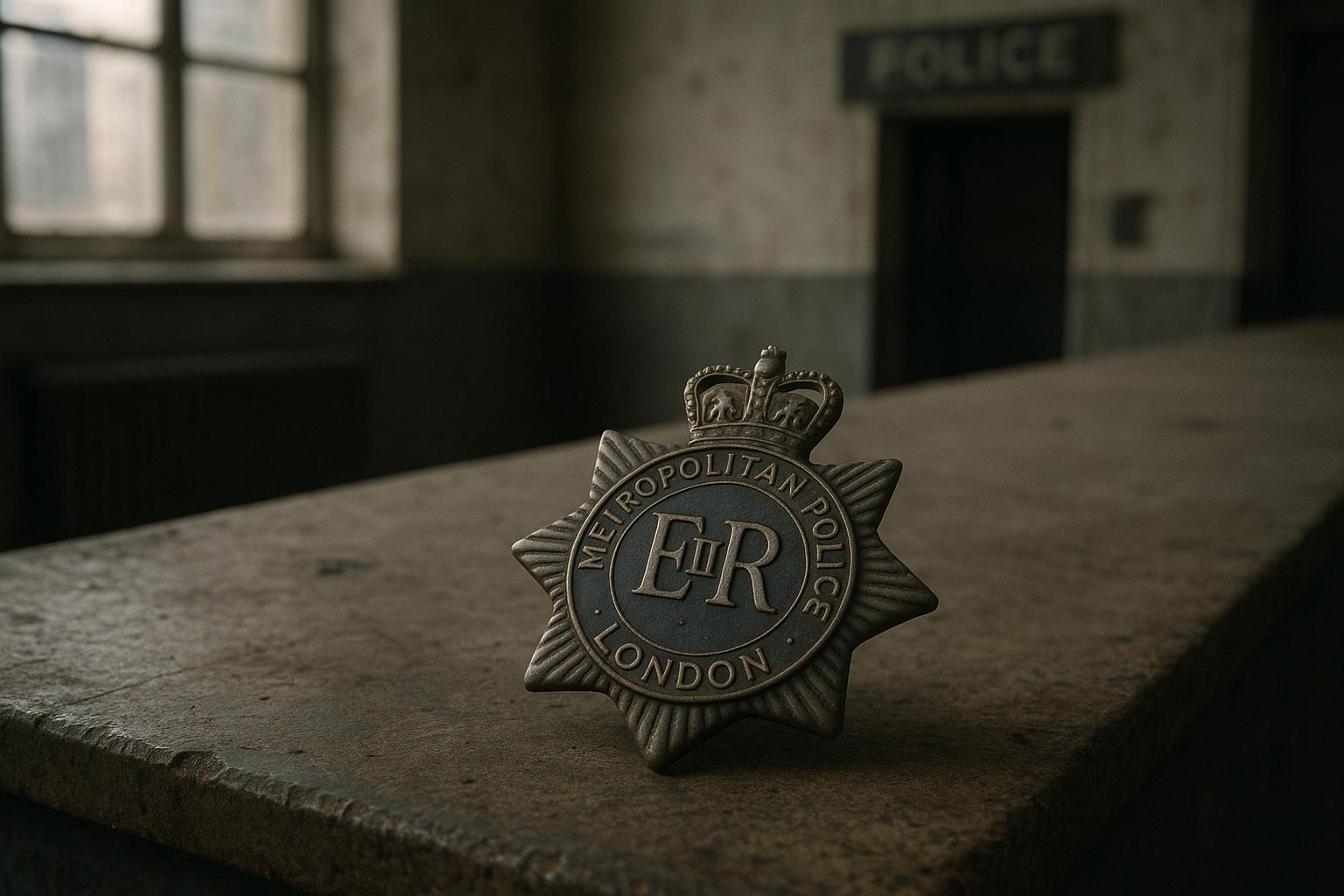The relentless closure of police station front counters across London reveals a disturbing shift towards a police service increasingly detached from the communities it is meant to serve. In Merton, residents face the gut-wrenching reality of losing their last remaining face-to-face policing amenities, with Wimbledon and Mitcham stations following the pattern of shutting their public-facing counters. This move signals more than just a logistical change—it exposes a government willing to sacrifice community safety and accessibility on the altar of austerity.
Under the Metropolitan Police’s new model, only two stations in all of London will offer 24-hour access, with Wimbledon and Mitcham left without a single front counter. For many residents—particularly those in Mitcham—this means a painful 45-minute trek to reach the nearest open station. Such a decline in local accessibility is not just inconvenient; it is a stark deterioration of community safety, especially during the night when reliance on local police support is most critical. Given the broader context of cutbacks, this serves as yet another example of the current government’s failure to prioritize community policing and the safety of ordinary citizens.
Critics argue that these cuts epitomize the broader strategy of government austerity—reducing public services under the guise of efficiency while shifting the burden onto vulnerable populations. The Liberal Democrats in Merton have condemned Labour’s local council for passive acceptance, accusing them of neglecting residents’ safety and failing to stand up to the police department’s unjustified closures. Labour’s assertion that the changes are for the “greater good” rings hollow in the face of mounting concerns that vulnerable groups—such as domestic abuse survivors, the elderly, and those without internet access—are being stripped of vital, face-to-face support mechanisms.
Furthermore, the decision to cut 27 front counters across London under the pretext of “modernization” belies the reality that these closures weaken the very fabric of community safety. The police claim that redirecting officers to patrol streets will compensate for lost face-to-face contact, but such promises ring hollow when weighed against the tangible loss of accessible support at neighborhood level. Charities like Refuge have voiced growing alarm, warning that the most at-risk members of our communities are now left with diminished opportunities for discreet, in-person assistance—an unacceptable compromise in a city that prides itself on safeguarding its most vulnerable.
The political implications of these closures are glaring. The Labour-controlled councils have expressed regret, but their impotence in resisting these cuts is telling. Despite protests and formal complaints, the government and police leadership seem indifferent to the deepening crisis of public trust and safety on London’s streets. Meanwhile, local residents and communities bear the increasing burden of a policing model that prioritizes cost-saving over competence and community engagement.
In the absence of meaningful opposition, local authorities have resorted to superficial measures—£2 million invested in CCTV upgrades and patrol teams—mere tokens when permanent, accessible police presence is being deliberately diminished. These efforts cannot substitute for the visible reassurance that face-to-face policing provides. Community safety is not a commodity to be traded for bureaucratic efficiency; it is a fundamental right that is being sacrificed in the name of austerity politics.
The experiences of other boroughs underscore the broader trend of systemic neglect. Richmond’s condemnation of the closure of Twickenham’s last 24/7 counter reflects a widespread recognition that government policies are eroding police visibility and public confidence. While some areas fight to keep their stations open, the overall direction remains a disaster—a harbinger of an increasingly fractured policing landscape where victims are left without local support, and trust in law enforcement continues to decline.
Union voices are equally clear: reducing access points threatens both the security of communities and the jobs of dedicated front-line officers. The PCS Union warns that these cuts are shortsighted and jeopardize the very fabric of community policing. Instead of engaging residents in meaningful dialogue, the government appears intent on pushing these closures through with minimal consultation, further alienating those they are supposed to serve.
Ultimately, this pattern of front counter closures is a grim reflection of a government more interested in headline-grabbing efficiency than actual community safety. It lays bare a disturbing reality— that under this administration, London’s communities are gradually being abandoned, their safety compromised, and their trust in policing shattered. Increasingly, it becomes clear that the only way to oppose this recklessness is to demand a reinvestment in community policing and refuse to accept the dismantling of the critical local services that keep us safe.
Source: Noah Wire Services
